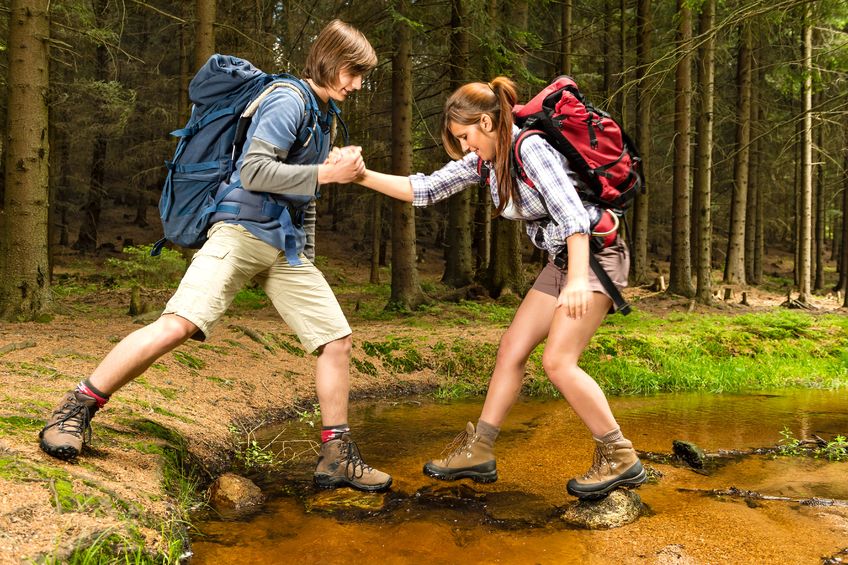Hiking trails that are strenuous and unsuitable for beginners or those with a fear of heights are just one of the mistakes that novice hikers make. They are generally out of shape and even though they are exhausted, cranky and hungry they elect to keep going even though they know they should turn back.
This is just one serious error the novice can make – let’s take a look at a few more:
Bad Trail Choice
Hikers should always consider length, time and the level of difficulty of the trail when making the decision to try it. Your energy will be sapped, you and your hiking buddies will be frustrated and you’ll wind up with very sore muscles the next day when you hike a trail that is too long or strenuous for you.
You can avoid this by starting small and working your way up. Try short, easy trails first and the gradually increase the difficulty and length of your hikes. You’ll be able to enjoy full day or overnight hikes before you know it!
Poor Preparation
Taking a casual stroll on a treadmill at the gym once a week isn’t enough to prepare you for a vacation full of hiking – even one with an incline feature!
Make sure you are mentally and physically prepared if you have your heart set on a particular trail. Tackle similar trails in your area first to try and simulate the trail you dream of taking.
Taking too Much or too Little
Most people understand the basics of what to wear and carry while hiking. Break your boots in ahead of time, dress in layers, wear sunscreen and drink plenty of water.
What most people do not understand is the line between not enough and going overboard. A lot of novice hikers have a fear of leaving something behind so they stuff their packs with first aid kits, extra water, extra clothing and camera equipment. What happens next is they completely throw off their balance.
Take reasonable precautions when preparing for a hike. If you’re taking a day hike, dress in light layers and carry the amount of water and food you need for the time you will be hiking. Minimize everything else. Note: Make sure to practice wearing your pack on a few short hikes to get used to how it feels.
Taking the Wrong Pace
If you have more planned for the day than hiking, make sure to do those other things first. Take the photographs you want and get in your sightseeing before you set out on your hike.
Remember, you’re not running a race so pace yourself when you begin your hike. Keep in mind that once you reach the farthest point of your hike, you still have to walk back. So save your energy by pacing yourself so you’re not exhausted and too tired to enjoy the rest of your trip.
No Turning Back
Some mountaineers experience “summit fever” when they’re climbing and push down that voice in their head that says “turn back.” Don’t be like them and push yourself beyond your limits. You might enjoy the hike to the summit but you won’t enjoy the trip back!
You shouldn’t hike because you want to place a check mark on your list of trails; you should hike because you find it rewarding. If you find yourself on a hike that is too long or tiring, there is no shame in turning back. You don’t want to look back on your hike and cringe because you know how miserable you were; you want to look back with fond memories.
Follow Us: Facebook – Foursquare – Twitter – YouTube – LinkedIn

